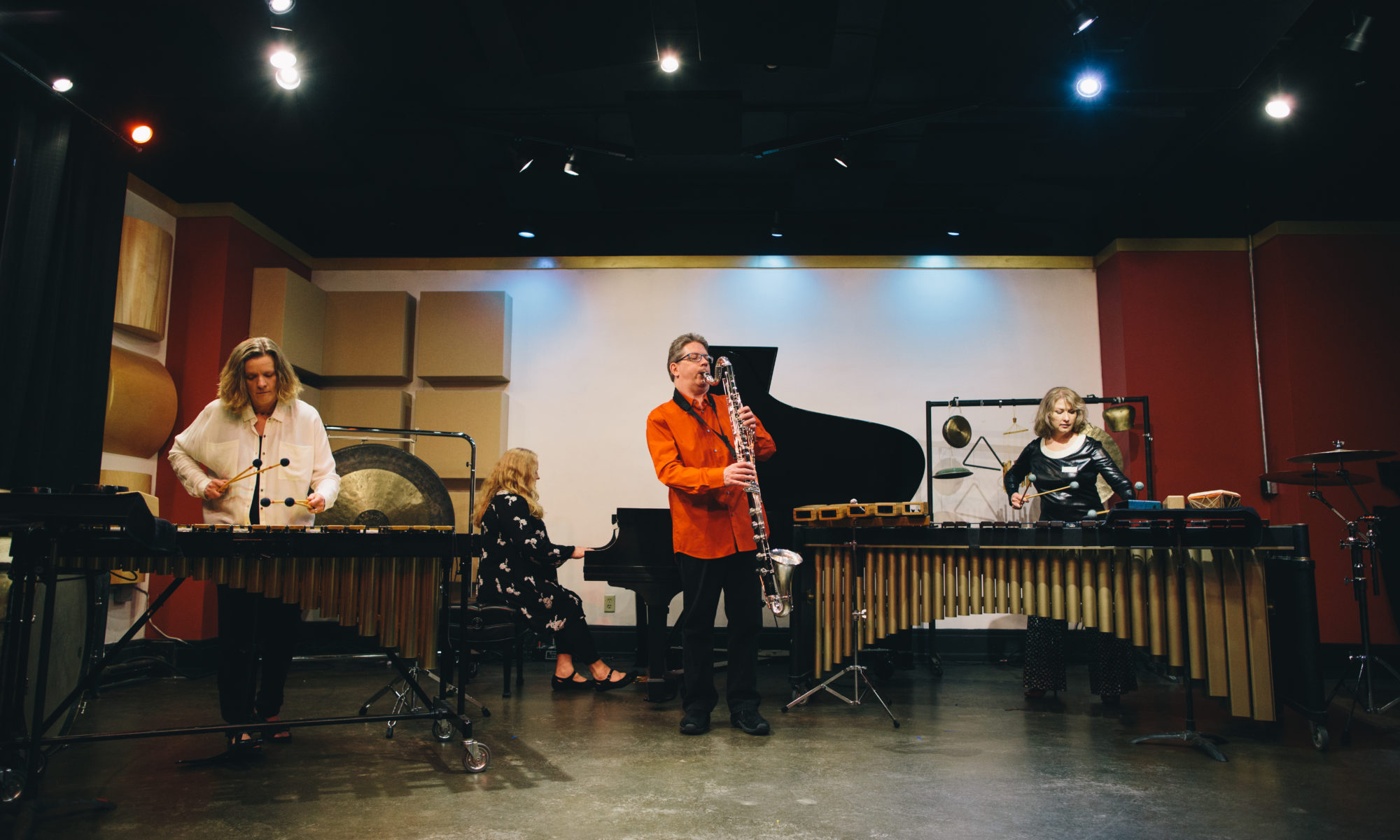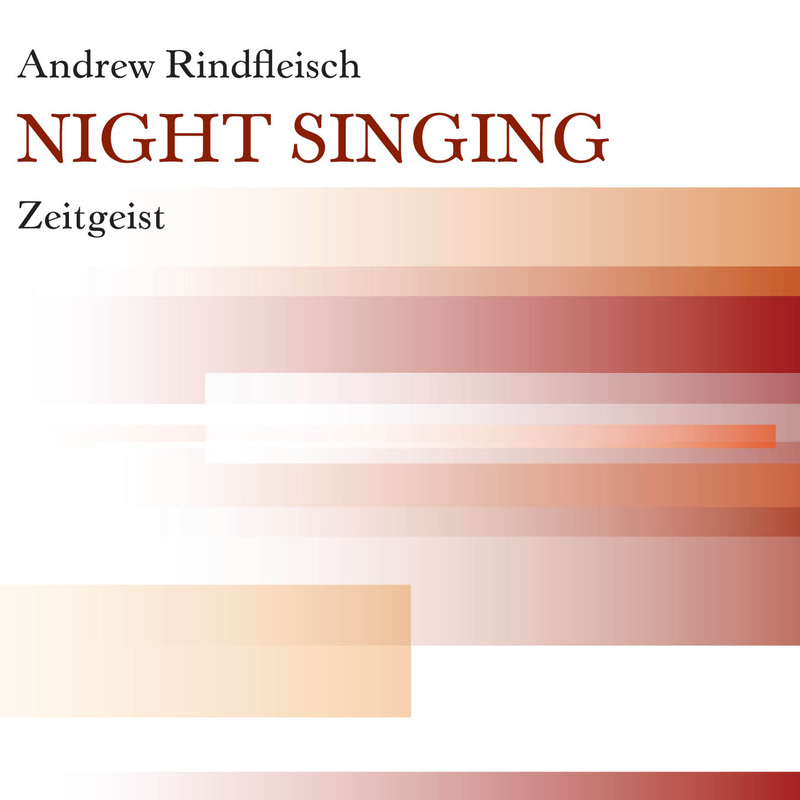Improvisation Situation (1992)
Zeitgeist with Andrew Rindfleisch, voice/bongos
Andrew Rindfleisch reminds us that, whether improvisatory or not, his
music comes out of a theatrical conception, and he thinks of the the group improvisation of Improvisation Situation as a sort of theater. He describes the impetus to his vocalization as a dramatic one, thinking of himself as a wild character on a stage, physically moving, dancing, speaking, screaming, and singing theatrically – that is, in inspiration, he considers it as much a theatrical performance as a musical one, and he adds that the expressive impulse of his more-elaborately-notated music is similarly theatrical.
Starting with the sort of syllables musicians often use to demonstrate musical ideas to each other, and then soon moving towards a complex rhythmic continuity, Improvisation Situation offers us a likely unexpected and fantastical side of each and every one of the musicians who have been behaving, musically, so differently so far on this CD. It’s an improvisation that involves the whole group, in which nothing was written out save a short passage (say, 8 bars) in the slow music towards the middle of the piece where Rindfleisch sings with the bass clarinet. However, Rindfleisch conceived of the piece as having four sections, and talked with the members of the group about the character of each area and how it would work, and then, as he put it, after he initiated a direction for each, “wherever it went, that’s where it went.” However, as they played, he would be there to indicate changes in what and how the musicians would play, and thus each section would have roughly three or four spots at which he would either cue the musicians to begin, end, or change what they were playing, or, for his part, change the music he was playing himself and beckon the others to follow. Although both Zeitgeist and Rindfleisch came to the session with broad experience as improvisors, prior to the recording session, they had never before improvised together. And so we find in their work a dark and wild instrumental context for a spoken and shouted speech-syllabic improvisation: rather than abstract phonemes, the syllables seem more to have been extracted from some still unknown, but human, language.

Composer Andrew Rindfleisch (b. 1963) has enjoyed a career in music that has also included professional activity as a conductor, pianist, vocalist, improviser, record producer, radio show host, educator, and concert organizer. As a composer, he has produced dozens of works for the concert hall, including solo, chamber, vocal, orchestral, brass, and wind music, as well as an unusually large catalog of choral music. His committed interest in other forms of music-making has also led him to the composition and performance of jazz and related forms of improvisation.
Mr. Rindfleisch is the recipient of the Rome Prize, a John Simon Guggenheim Fellowship, the Aaron Copland Award, and the Koussevitzky Foundation Fellowship from the Library of Congress. Over forty other prizes and awards have followed honoring his music. He has participated in dozens of renowned music festivals and has received residency fellowships from the Bogliasco Foundation (Italy), the Czech-American Institute in Prague, the Charles Ives Center for American Music, the June in Buffalo Contemporary Music Festival, the MacDowell Colony, and the Pierre Boulez Conductor’s Workshop at Carnegie Hall. He holds degrees from the University of Wisconsin at Madison (Bachelor of Music), the New England Conservatory of Music (Master of Music), and Harvard University (PhD).
As a conductor and producer, Mr. Rindfleisch’s commitment to contemporary music culture has brought into performance and recording over 500 works by living composers over the past 20 years. He has founded several contemporary music ensembles and currently heads the Cleveland Contemporary Players Artist in Residency Series at Cleveland State University, and the Vertigo Ensemble at the Utah Arts Festival in Salt Lake City. He has made guest conducting appearances throughout the United States and abroad with many diverse musical organizations; from opera and musical theatre, to orchestral, jazz, improvisational, and contemporary avant-garde ensembles.

